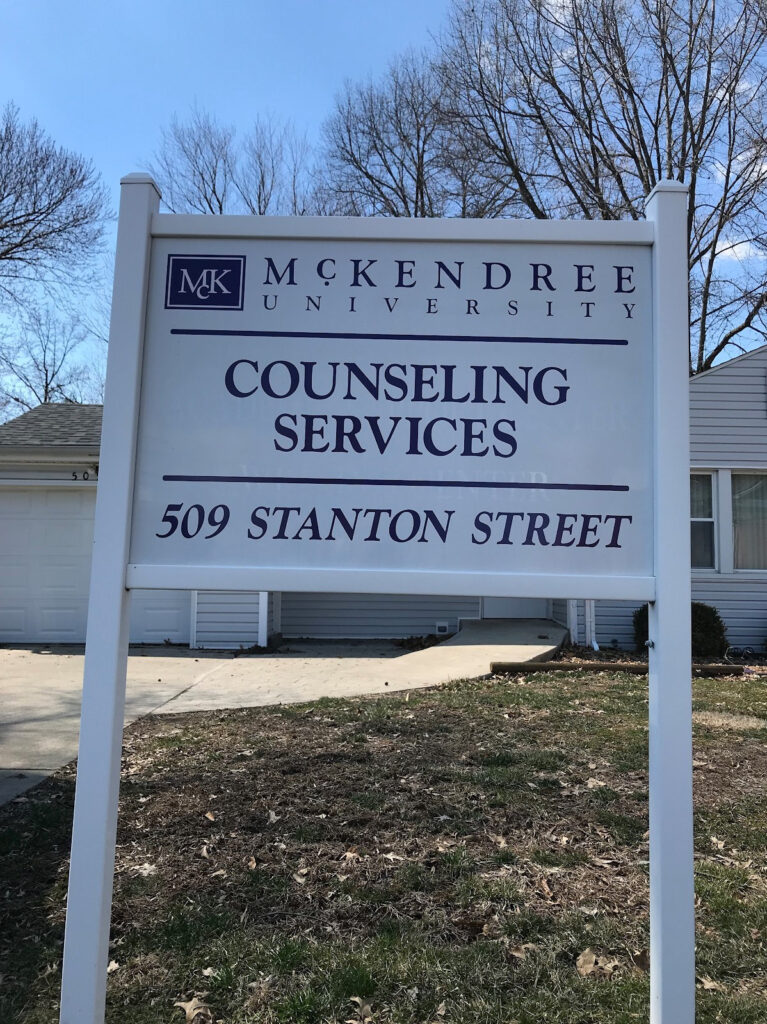
By Caylin Dean, Contributing Writer
Depression, anxiety, addiction: just a few of the disorders that many colleges’ students battle in a constant tug-of-war. Academic responsibilities and expectations placed upon us, coupled with separation from home, participation in athletics, relationships and upholding a job can lead us nearly to insanity- that’s when it is important to have someone to turn to. With nearly 2,500 students, the mere four person staff is simply not enough to meet the demands of the ever-overwhelmed college population. An article by the National Institute of Health says that almost 12 percent of college students suffer from some form of anxiety, and seven to nine percent of students experience depression, which, if not properly addressed, can lead to suicide. In fact, a survey reported that of 8,155 students, 6.7% disclosed thoughts of suicide, 1.6% reported having a plan, and 0.5% made a suicide attempt within the last year. Now, 0.5% may seem like an insignificant number, but when considering the lives of peers that walk the same hallways, eat in the same cafeteria, and play the same sports, it becomes crucial. Would access to mental health resources have deterred these individuals from their thoughts?
In an effort to gain more insight on counseling services and resources offered, I contacted Melissa McHenry, one of the counselors on site.
Q: Has there been a larger number of students seeking help from counseling services within the last few years?
A: Yes, we tend to see more and more every year.
She added that from fall 2016 to fall 2018, the site saw an increase of over 400 people, while they hit an all-time high of 1,193 total students in spring 2017.
Q: How many members of staff are available for treatment session?
A: Two full-time counselors, one part-time counselor, and one part-time intern.
Q: Has there been an increase in staff since the relocation?
A: Yes, we added a contract counselor, and a counselor-in-training as an intern.
Q: What is the most prominent illness(es) that is addressed?
A: Depression and anxiety.
Q: Is there some sort of protocol in place in case an emergency occurs out of appointment times?
A: We have an on-call phone that Charles Gregory II (the other full-time counselor) and I pass back and forth for a week at a time. Additionally, public safety has the number to contact us in case of an emergency.
Q: Is there anything students can do, aside from visiting counseling services, to get needed support?
A: We have a stress clinic that is run by the counseling graduate students where they can get individual sessions on how to manage stress. The school nurse is able to prescribe anti-depressants and anti-anxiety medications. We can also refer individuals to services off campus if needed. We do positive psychology booths in the fall at the involvement fair and facilitated a Stress Fest that showed students how to reduce stress.

It is evident that there has been an increase in services offered to accommodate the rising need for mental health support; the intern, contract counselor, and Stress Fest are all great tools for McKendree students to utilize. Often, students do not realize the resources they have available to them. Just last week, I received an email entitled, “Free Snacks and Mental Health Monthly: Anxiety 101.” It goes on to explain what anxiety is, tell-tale signs that an individual may need to seek help, what a friend can do for support, and services that may be acquired, such as counseling services, the stress clinic, and even Chestnut Health Systems, an off-campus support resource.
I also reached out to Lori Tretter, senior psychology student, counseling services intern at McKendree, and mental health advocate.
“I think people underestimate how common it is to deal with mental health issues. One thing I’ve noticed is that people of all different personalities come into counseling. With the four total counselors, two full-time and two additional part-time, the counseling center is completely booked, which shows how common it is to seek services; however, I don’t believe that as many people would seek services if they didn’t offer it here for free. I think our campus needs to promote that it is okay to seek treatment just like any physical illness, as physical illness can emerge from mental illness as well. We are students stressing over money, roommates, campus policies, transportation, being away from home, jobs, the crazy amount of homework we have, as well as athletic pressures and coaches. Often times, it seems that society stresses that it is weak for us to take a break.”
No matter the status of our mental health, everyone becomes stressed, anxious and upset at times, but if it persists, it is important to know that there are services available.

Caylin, thank you for sharing this information about such an important service on our campus.
Caylin,
Thanks for your report on Counseling Services.